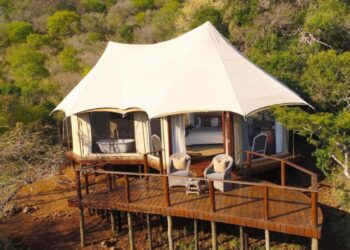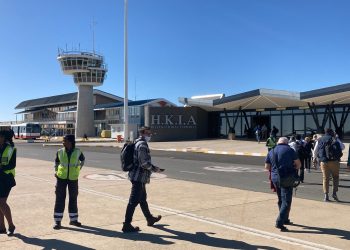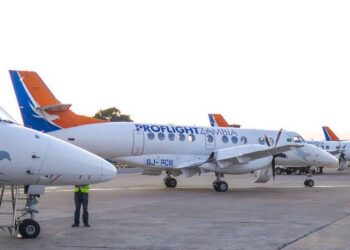
Namibia is experiencing a remarkable surge in European tourist arrivals, with the market constituting 72.3% of the total visitors in August 2023, latest data shows.
Angelique Bock, an Economic Researcher at Simonis Storm, said the appeal of Namibia’s outdoor experiences is a driving factor behind this shift.Â
“August 2023 saw the tourist composition of 72.3% Europeans, 14.2% Namibians, 4.3% South Africans, and 2.2% Asians, underlining the dominance of European tourists in the mix,†she said.
Bock emphasised the significance of the shift in tourist demographics, adding that it is attributable to the increased number of tourists entering the country, reducing the proportional representation of Namibian tourists.
 “The majority of tourists, accounting for 51.7%, have expressed a preference for the lodge experience, which offers a luxurious escape into nature,” she noted.Â
Additionally, the rise in hotel occupancy rates in central areas can be attributed to tourists using these facilities as a resting point before embarking on self-driven journeys to lodges located in the northern and southern regions or departing for their next destinations.
For those seeking a closer connection with nature, tent camps, representing 14.6% of visitors, and tented lodges, making up 6.1%, provide an immersive outdoor experience.
She said the growing popularity of Namibia as a tourist destination is further evidenced by the cumulative number of vehicles acquired by rental companies, which has exceeded the total number of vehicles purchased in 2019 year-to-date.
This comes as the tourism industry’s peak season has rebounded to pre-pandemic levels, with an August 2023 occupancy rate of 68.9%, up from 60.98% in July 2023.
Bock pointed out that “… this marks a notable 7.6 percentage point increase from the 61.3% rate recorded in August 2022 and stands as the highest occupancy rate since the last pre-pandemic peak of 69.9%.”
With September typically representing the peak month of the year, experts anticipate that this September will surpass pre-pandemic levels, signaling a robust recovery for the tourism sector.
Year-to-date, the average occupancy rate stands at 49.1%, which is only 2.1 percentage points below the 2019 average of 51.2%.
Bock underscored the importance of this performance, stating that it “positively contributes to the GDP by translating into higher consumer spending in the country, providing vital support to accommodation and tour operator businesses.”
The northern area has seen a substantial upturn, recording the highest occupancy rate in August 2023 at 76.4%, compared to 62.5% in July 2023.
“This marks the first time since October 2022 that the northern area has held the highest occupancy rate,” Bock said.
The southern area followed with the second-highest occupancy rate of 65.4%, 6.5 percentage points higher than the prior month, followed by the central area at 62.1% and the coastal area at 61.9%.Â
On average, tourism in the central area has surpassed pre-pandemic levels, with a year-to-date average occupancy rate for 2023 at 52.4%, outperforming that of 2019 (50.5%) by 1.8 percentage points, while the other areas are between 2 to 7 percentage points short.Â
“Considering this positive international perception of Namibia, the tourism sector stands to reap the benefits of this. As Namibia becomes increasingly appealing to affluent individuals, it is poised to naturally draw a larger number of tourists, further boosting its tourism industry and economic growth,” Bock noted.











